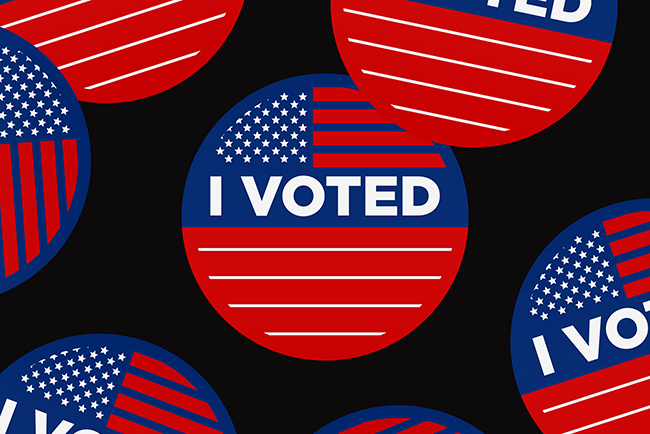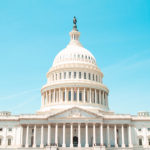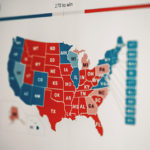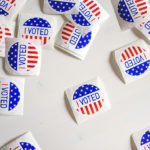
As much as pastors shouldn’t avoid the election, they also shouldn’t be obsessed with it. The body of Christ needs pastors, not pundits.
By Dan Darling
The 2024 presidential election season is upon us, with several declared candidates on the Republican side and a few on the Democratic side. The election promises to be as contested and divisive as any in the modern era. And if we are not careful, the politics of the moment could overwhelm and divide churches as it has in recent years. What can pastors do to “keep the unity of the Spirit through the bond of peace” (Ephesians 4:3, CSB)?
Don’t avoid the election
Pretending politics isn’t a part of the everyday environment might seem the prudent path. But God has sovereignly called Christians in America to live out their faith in this imperfect democracy. We have a duty to steward our citizenship for the good of our neighbors and the glory of God. We will be held accountable, by God, for the political power we hold (Romans 13), however small.
“We have a duty to steward our citizenship for the good of our neighbors and the glory of God.” — @dandarling Click To TweetIf we take seriously our responsibility to obey the Great Commandment (Mark 12:30) and our calling as exiles to “pursue the well-being of the city” (Jeremiah 29:7, CSB), then we can’t shrink back in fear.
So, pastors should equip and teach their people about the importance of civic engagement. What civic engagement specifically looks like, of course, depends on our varied callings. Some Christians sense a call to run for and serve in public office to help shape policy, to steward their gifts as activists.
For others, involvement might be quieter—putting down roots in local communities and exercising their vote. There is no way to avoid the politics of the moment. Even a withdrawn, pietist approach is a statement on the status quo.
Don’t be obsessed with the election
As much as pastors shouldn’t avoid the election, they shouldn’t be obsessed with it either. The body of Christ—your local body of believers—needs pastors, not pundits. The pulpit is a sacred place where you preach a word that can’t be heard anywhere else in the week.
What’s more, pastors should avoid, even in their social media presence, the temptation to jump into every single twist and turn of the presidential election and the temptation to endorse candidates. This can sully the high and holy calling of pastoral work.
This doesn’t necessarily imply pastors shouldn’t and can’t have public opinions on various issues that arise or that pastors shouldn’t take opportunities to meet with, pray for, and befriend those called to run for office. Pastors are citizens as well. But they should steward their influence in a responsible way.
Equip people on how to think about important issues
The gospel isn’t partisan, but it is unmistakably political. In the first century, God’s people resisted the cult worship of the Greco-Roman world and instead pointed to an itinerant rabbi from Nazareth as the Lord of the universe. This was political and costly.
“The gospel isn’t partisan, but it is unmistakably political.” — @dandarling Click To TweetTo preach and teach faithfully, pastors will need to help their people understand how the gospel and Christian ethics shape our public lives. There is a way of living in the world that is counter to the false ideologies of the age. What’s more, God’s people should stand up for truth and justice.
This requires discernment. Some issues are clear-cut, such as the sanctity of human life, the biblical view of gender and sexuality, the sin of racism, and the importance of religious liberty. To preach and teach on these issues is not partisan, even if the issues map up to a particular side.
Some issues, however, are not as clear-cut. Christians, for instance, should care deeply about the poor. But brothers and sisters will disagree on the most prudent mechanism for alleviating poverty. Issues like this are what Jonathan Leeman, in his book How the Nations Rage, refers to as “jagged lines.”
Model and teach people how to do politics
It’s not simply important to steward our citizenship. It’s also important we do this in a Christ-like manner. The apostle Peter, who was imprisoned for preaching the gospel and martyred for his faith, urged believers to both be “ready at any time to give a defense to anyone who asks you for a reason for the hope that is in you” (1 Peter 3:15, CSB) and to speak with “gentleness and reverence” (1 Peter 3:16, CSB). Courage and civility are not enemies. Scripture not only dictates what we believe but how we articulate those beliefs.
Christians should be distinguished not merely for the countercultural way we live but also for the countercultural way we speak. There will be manifold temptations to get caught up in the nasty mudslinging that accompanies campaigns, but while we should make robust, forceful arguments for truth, we should also allow the Spirit of God to lead us to avoid “anger, wrath, malice, slander, and filthy language” (Colossians 3:8, CSB).
“Courage and civility are not enemies. Scripture not only dictates what we believe but how we articulate those beliefs.” — @dandarling Click To TweetPastors can help their people both by teaching what the Bible says about our speech and modeling this in our interactions online and in person.
Prioritize Christian unity
Undoubtedly, in every congregation, there will be differences of opinion on political matters. Some issues rise to the level of Christian orthodoxy, but many will simply be differences among Christians who love Jesus. If we are not careful, we might let a politician or pundit divide brothers and sisters in Christ. This is why it is important for pastors, in this season, to stress what God’s Word says about the importance of seeking, maintaining, and living out our unity.
Unity isn’t sameness. It isn’t us all holding hands and singing Kumbaya. Unity involves the practice of love among folks who have deep disagreements but nevertheless share a common faith—one Lord, one faith, one baptism (Ephesians 4:5, CSB). Jesus’s death and resurrection created “one new humanity” (Ephesians 2, NIV) from every nation, tribe, and tongue.
One day we will gather around the throne of God in joyful unison and worship (Revelation 7). But until then, we are commanded to work toward this, to love one another, and in doing so, show the world a glimpse of the coming kingdom of God (John 13:35).
Thank God for the election
This sounds absurd, but we should be thankful for the election. However imperfect our system is, it affords Christians in America the historically rare opportunity to shape our communities, our cities, and our country. Even as we lament the robocalls, the endless political signs, and the nonstop mudslinging, we might consider our brothers and sisters who live in closed countries and aren’t afforded our same privileges. Nobody in North Korea or China is lamenting partisanship.
Even as we complain about American politics, we forget gratitude for the freedom we have to cast our votes and speak our minds, a freedom that didn’t come cheaply but was secured by the blood of so many who have given their lives defending our country.
For permission to republish this article, contact Marissa Postell Sullivan.

Dan Darling
Dan is the director of the Land Center for Cultural Engagement at Southwestern Seminary. He is the bestselling author of several books, including Agents of Grace.











